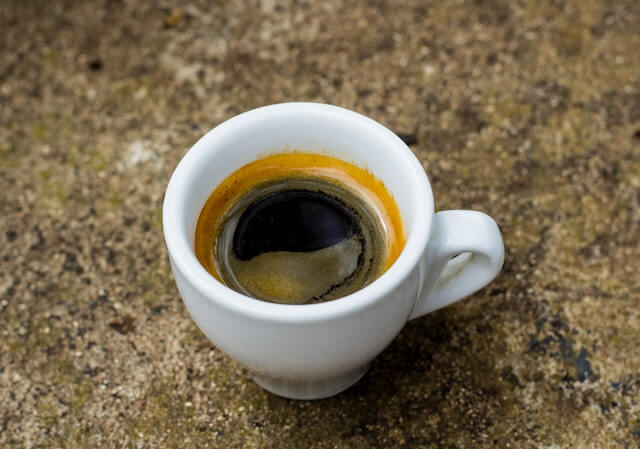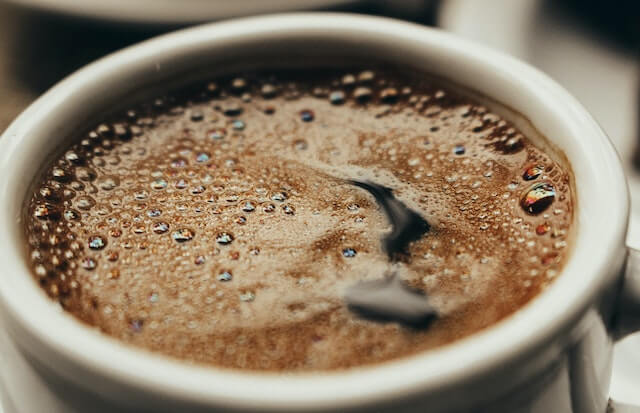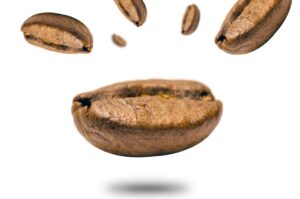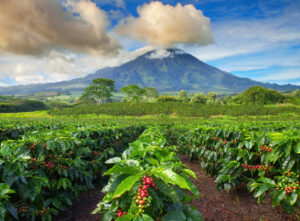What is Intermittent Fasting: A Health Trend with Ancient Roots
Intermittent fasting (IF) is an eating pattern that has been used by cultures around the world for centuries. From religious fasting to traditional healing practices, the idea of deliberately abstaining from food for a while has a rich cultural and historical significance.
Fast forward to the present day, intermittent fasting has gained popularity and has become a health trend as it has been linked with numerous health benefits. IF involves alternating periods of eating with periods of fasting. During the fasting window, you can choose to abstain from food entirely or eat only very small portions.
How does intermittent fasting work?
Intermittent fasting involves alternating periods of fasting and eating. During the fasting hours, the body undergoes several physiological changes. Hormone levels fluctuate, and insulin sensitivity increases, leading to improved blood sugar control. Additionally, the body transitions from glucose to fat-burning mode, whereby it relies on stored body fat for energy. This leads to weight loss and reduced risk factors for chronic diseases.
There are several ways to incorporate intermittent fasting into your lifestyle. The most popular method is the 16/8 fast, in which you fast for 16 hours and eat only during the remaining 8-hour window. Other methods of intermittent fasting include the 24-hour fast, the 5:2 fast (eating normally for five days, followed by two low-calorie days), and alternate-day fasting (eating normally every other day).
Benefits of Intermittent Fasting
- Weight Loss – Promotes weight loss by reducing calorie intake and promoting the burning of stored fat.
- Improved Blood Sugar Control – This can lead to improved insulin sensitivity, blood sugar control, and a reduced risk of type 2 diabetes.
- Lowered Inflammation – This can lower chronic inflammation in the body, reducing the risk of developing chronic diseases, such as heart disease, cancer, and Alzheimer’s disease.
- Improved Brain Function – This can boost brain function by promoting neuron growth, increasing brain-derived neurotrophic factor levels, and optimizing cognitive function.
- Reduced Triglycerides and Cholesterol – Can lower cholesterol and triglyceride levels, reducing the risk of heart disease.
- Promotes autophagy – A natural cellular process that helps the body destroy and remove damaged cells while recycling them into energy.
Can I Drink Coffee While Intermittent Fasting?

So what is fasting? Fasting means not eating food for a certain amount of time. It is a way to give your body a break from digesting food and can help you stay healthy. During fasting, you cannot eat any food but you can drink liquids like water or coffee.
One of the most common questions that come up for coffee lovers who are attempting intermittent fasting is whether or not they can have coffee breaks while attempting this weight loss method. Most people who attempt intermittent fasting drinks one cup or two of coffee, but there is still confusion about whether or not it will break a fast.
Coffee drinking while intermittent fasting is a hotly debated topic among fitness enthusiasts. Some people claim that drinking coffee does not affect fast and even enhances fast performance. However, some experts believe that any addition of nutrients to the body might break the fast, which includes drinking even one cup of coffee. This is because coffee contains caffeine and other stimulants that may raise insulin levels and hinder fat burning if taken in significant amounts. So, it’s important to understand the potential effects of it while intermittent fasting.
If you choose to consume coffee during fasting, it’s important to remember that you can use additives like sugar, milk, or creamer in your coffee as these may lead to a rise in insulin and hormone levels in the body, breaking the fast. Instead, you can add natural sugar alternatives like monk fruit, stevia, or honey in small amounts. These alternatives are generally believed to not have any negative impacts on the fast itself.
Another thing to consider is the type of coffee you’re drinking while fasting. Black coffee while fasting is the preferred option for those following this weight-loss technique. When you drink black coffee, you’re avoiding the addition of any nutrients that could increase the levels of sugar in your blood. Black coffee has no calories, little to no carbohydrates, very small amounts of protein, and no measurable effects on blood sugar levels.
Importantly, too much coffee consumption while fasting can be detrimental to your health. Caffeine is known to increase your heart rate and blood pressure levels. So, it is best to drink your coffee in moderation and avoid drinking too many cups of joe during fasting.
What about Bulletproof coffee?
Bulletproof coffee is a unique beverage that has gained a significant following in recent years. It is typically made by blending coffee, unsalted butter, and medium-chain triglyceride (MCT) oil. The idea behind this Coffee is to provide a source of energy and mental clarity without the crash that can come from regular coffee. The butter and MCT oil work together to provide a longer-lasting source of energy and to help with focus and memory. Some people also claim that drinking Bulletproof Coffee can help with weight loss and reduce inflammation. Criticisms of Bulletproof Coffee include concerns around the high calorie and fat content and the lack of scientific evidence to support some of the alleged metabolic benefits.
Is Espresso Okay for Intermittent Fasting?

Intermittent fasting is a popular diet plan that involves restricting your eating periods to a specific window of time. This can range from 8 to 12 hours, depending on your preferences. During the fast, you are not allowed to consume anything that can break your fast, including coffee and tea. This can be problematic for coffee lovers who rely on their daily dose of caffeine. However, there is one kind of coffee that might be acceptable for intermittent fasting: espresso. But is it okay? let us explore the benefits and drawbacks of drinking espresso while fasting.
First, let’s understand what espresso is. Espresso is a kind of coffee that is made by forcing hot water through finely-ground coffee beans at high pressure. The result is a concentrated and flavorful shot of coffee that is perfect for caffeine lovers. But how does it fit into a fasting diet?
The good news is that espresso contains zero calories, which means it won’t break your fast. This is one of the reasons why espresso is a popular choice for intermittent fasters. However, you should be aware of the potential drawbacks of drinking espresso while fasting. One potential issue is that caffeine can stimulate your stomach and trigger hunger pangs, which can be difficult to resist during fasting. This can lead to overeating or breaking your fast earlier than planned.
Another potential issue is that espresso can lead to increased cortisol levels, which can make you more prone to stress and anxiety. This is because caffeine stimulates the production of cortisol, a hormone that is released by the adrenal glands in response to stress. While this is not a major concern for everyone, if you are prone to anxiety or stress, you may want to limit your intake of espresso while fasting.
On the other hand, there are also health benefits to drinking espresso while intermittent fasting. One benefit is that espresso can help boost your metabolism, which can help you burn more calories throughout the day. This is because caffeine is a natural stimulant that can increase your metabolic rate. Furthermore, espresso also contains antioxidants that can help protect your body against disease and inflammation.
Lastly, it’s important to note that everyone’s body is different, and what works for one person may not work for another. Some people may be able to tolerate espresso during fasting without any issues, while others may experience the negative effects of coffee. If you’re unsure whether or not espresso is okay for your fasting plan, it’s always best to consult with a healthcare professional before making any changes to your diet or lifestyle.
Benefits of Drinking Coffee While Fasting, and Risks

Fasting is a popular health trend that has been gaining popularity in recent years. Many people abstain from food for various reasons such as spiritual beliefs, weight loss, or detoxification. However, the question that arises is whether you can drink regular coffee while fasting. For coffee lovers, it’s challenging to give up their daily dose of caffeine. let us discuss the benefits and risks of consuming coffee while fasting.
Benefits of Consuming Coffee While Fasting
1. Appetite Suppressant
One of the benefits of consuming coffee while fasting is that it can suppress your appetite. The caffeine in the coffee can help you to feel full and reduce the urge to eat. This can be a helpful tool during your fast, especially if you are new to fasting and find it challenging to avoid food.
2. Improved Focus and Energy
Another benefit of consuming coffee while fasting is that it can improve your focus and energy levels. When you fast, your body is starved for energy and needs a source to keep you going throughout the day. Drinking coffee per day can prevent you from feeling lethargic and can keep you focused and alert during your fasting.
Risks of Consuming Coffee While Fasting
1. Dehydration
One of the risks of consuming coffee while fasting is that it can dehydrate you. Caffeine is a natural diuretic, which means it can increase urine production and lead to dehydration. To avoid this, make sure to drink enough water during your fasting period and limit your coffee intake.
2. Upset Stomach
Another risk of drinking coffee while fasting is that it can upset your stomach. If you have a sensitive stomach, drinking coffee on an empty stomach can cause acid reflux and stomach discomfort. It’s best to avoid coffee if you have these issues.
Types of Coffee Suitable for Fasting:
Black coffee or unsweetened coffee contains zero calories, and it’s an excellent choice for intermittent fasting and coffee. Coffee additives like milk or sugar to your coffee interfere with the fasting process as it increases the levels of sugar in your blood, which leads to an insulin response. Therefore, it’s best to consume black coffee. You can also opt for decaf coffee or herbal tea if you want to avoid caffeine.
How to Drink Coffee While Fasting:
To derive the benefits of drinking coffee while fasting, there are specific guidelines to follow. Firstly, aim for two cups of coffee a day. Drinking too much coffee can lead to jitters, anxiety, or even addiction. Secondly, drink coffee during the fasting Interval to avoid interfering with the digestive process or on an empty stomach. Lastly, avoid adding any sweeteners, flavors, or cream to your coffee.




